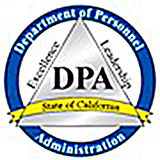Expert Interview – Jodi Traversaro, Learning and Performance Management Manager, California Department of Personnel Administration, USA
 For the report Performance Management in 2012, The KPI Institute conducted 12 semi-structured interviews with practitioners, academics and consultants, who offered rich insights into the state of Performance Management as a discipline.
For the report Performance Management in 2012, The KPI Institute conducted 12 semi-structured interviews with practitioners, academics and consultants, who offered rich insights into the state of Performance Management as a discipline.
Jodi Traversaro, Learning and Performance Management Manager at California Department of Personnel Administration, USA was one of the practitioners that The KPI Institute interviewed.
1. What does the term Performance Management mean to you?
The critically interconnected management processes that work together to enable an organization to achieve results. Performance management includes key practices to ensure organizations set priorities and operational plans, establish targets and relevant metrics, and create mechanisms to analyze, evaluate and report progress and regular intervals. It also includes activities to make necessary adjustments and improvements to ensure that the organization remains pointed in a direction to support its mission and achieve its results in the most effective and efficient manner. (Note: as defined in Performance Management in California State Government, An advisory report from the Performance Management Council, 2010).
2. What drives interest in Performance Management?
The general goal to make government operations more effective and efficient drives interest in this field within the public service. Federal government grants require it, economic decline, growing public interest on how well government is performing with tax dollars (what are they getting for what they are paying), need to use performance measures to evaluate program effectiveness, and to use data to drive program efficiencies. The press, such as newspapers is another driver.
3. What are your thoughts on the relationship between performance management at organizational, departmental and individual level?
Performance management is a tool used sporadically throughout state government, more so in some agencies and departments than others. Ideally, performance measures should track strategic goals in the broadest sense throughout all levels, but also be used in more detailed form to drill down into work (to help managers manage and leaders lead).The program metric is also the employee metric, it should help managers manage and help leaders lead. So you would have individual performance that tied to term performance, program performance, organizational performance and of course overall performance.
But one thing to note is that in State Government of California, we have a unique situation, generated by the unionized workers. By and large, here in California, I cannot tell a police officer that he must write 50 tickets per hour. There are multiple rules that prohibit governments for setting employee performance metrics for varies reasons. In government, we refer to those metrics as performance standards. So in fact the reality of public work is we have to create metrics that achieve results without compromising the fairness of what we do.
In an ideal world, everybody would have something like a baseball card where you can see the statistic and how they contribute to the team. So I believe that individual statistics can contribute to organization or team performance, which can contribute to the department or statewide performance. But we need to make sure that the metrics that we use are the right metrics or they can be applied in an appropriate way.
4. What are the 2012 key trends in Performance Management from the perspective of your knowledge and experience in this field?
Well, I think one of the key trends is really applying Performance Management in government. Oftentimes, we have the private sector measuring their bottom lines – revenue. In government operations you have a more unique challenge in trying to measure the value of public service. So I think the key trends will be to do a better job at measuring the value of government services. From that you will find the efficiency of the government.
Another trend is evaluating what people would call the “immeasurable”, for example, the value of the life of a duck, or the value of a state park. So, I think there is the measurement challenge in government that will be over count, and I think in addition, because of the tremendous loads of data in the internet, we will do a much better job connecting dots as data will be matched up now when before it was never matched up. So I see automation and connecting dots and data-driving decision-making and the desire for transparency in government that are huge trends that would force us to do things differently in government.
In addition, I think our network is better than we ever had in connecting talents and experts in the field to people who need to know. So because of that I think the scale of the people in this field is rapidly increasing. So it just has such a movement to make data-driven decisions. And the need of data to make the decisions in Performance Management is driving us to measure and automate that in the network and then make it transparent. So automation, networking, transparency, collaboration is just a tremendous demand for our public to be more efficient.
5. What aspects of performance management should be explored more through research?
There are several aspects including: how to teach people about the benefits; how to get people to adopt Performance Management in the management practices (how to get started is very hard); how to build the culture that accepts measurements and it is adaptable to changing them. So I think there is a general fear of data and I think there is also a fear of measuring people performance with metrics.
So as you know we’ve got this massive trend in US the baby boom issue. The baby boomers from the World War II are going to retire and are replaced by young people who are demanding a flexible working environment and want to be evaluated on results, not on when they show off to work. So in California, and in the US, we have a real shift in work preferences and so what happen is the younger generation would like to be measured on their contributions to the organization. But our current Performance Management systems are primarily focusing at the program at the departmental level, but not on the individual level.
So the question will be how we can get unions to buy into result-oriented work. And I think what happens in government is that people are measured on whether or not they can arrive to work on time, instead of whether or not they did a great job on writing something on saving the state ten million dollars. In the private sector you can reference based on sales. You can see how much revenue one individual generates. In government we don’t generate sales. We serve the public, so how we measure performance is very different. We have to measure how much money we save. To take a step further, there is a trend for people to say that. In fact there is book called “Government Just Doesn’t Make Widgets”. So there are many books that help government try and measure its value or its work. All I’m trying to say is that there is an area of research that is needed is how we can get the labor organizations to buy it, to adopt Performance Management for employees because sometimes managers focus on things that are not as important as the results. And so a trend of management is to create a more result-oriented work environment. And often times the new generations would like flexible schedules and they want to know what they need to get done and by when and they will get it done in their own way on their own time.
So what we have in government here in California is a style of management that does not match the preferences of our younger generation. And meanwhile we have this trend of Performance Management that is very strong in California and started at the federal level in 1996, but it has come out repeatedly but we have failed to implement it in California. So about two weeks ago, our governor sent an executive order that requires every state department to build Performance Management. So there is a lot of interest here because the government said we need to do this. But we see challenges when it gets to the individual level.
6. Please provide some examples of organizations which you would recommend for study due to their approach to performance management and achievements?
Well, of course, I’m going to focus on government. So I think the Federal Government is incredible. The US Federal Government has done an incredible job. And our president has actually just passed the new law that requires even more work to be done in this area.
For the State of California, there have been great efforts in our Tax Revenue Department, our income tax department called the Franchise Tax Board and we also have had some great achievements through our present system and we have 60,000 people that work in our Department of Corrections and Rehabilitation. That’s a department runs all of the state prisons with all the prisoners. And then we had a large effort to our Business Transportation and Housing Agency and they work with the Highway Patrol and also our Department of Moto Vehicle and also our Transportation Agency that handles our roads and bridges in the major highways. So there is a great effort in another large area there.
We also have another state, The State of Virginia that I think it’s also quite good. They have Balanced Scorecards for a lot of departments and agencies. Within there they have a HR Agency, and within the HR Agency they have various goals and objectives and it will tell you where they are with each and it’s very exciting that you can drill down and see how everything is aligned with the goals. And that means people, programs and metrics are all very well done. And the Federal Government does the same thing. They have a department called Office Personnel Management (OPM) who oversees the employee Performance Management and has the whole system on aligning all employees with federal performance.
7. Which are the main challenges of Performance Management in practice today?
The main challenges, one is to teach leaders in government what Performance Management is, what Performance Management looks like, how to implement Performance Management for all branches of the government. We teach people all about Performance Management, how to do it, what it looks like and how we can all be rowing in the same direction. That is a huge effort. The challenge is of course getting started as we are sort of starting again. And of course we don’t have a lot of money because we still are in a budget crisis so how we need to do this with strong leadership and a willingness to invest any change.
And the other issue is overcoming the fear of making your operations transparent. Your process is transparent; your program is transparent to greater scrutiny from outside parties. So you can imagine if everything I purchased for my program was made visible and somebody says you can buy that cheaper, I would be embarrassed. We do what we can with what we have and often times by making our decisions visible you open that upfor public scrutiny and that can be scary.
Another challenge in government is how to measure our performance. How do you measure the performance of a park? How do you measure the economic impact of too many visitors? Or the environmental impact of global warming. So you have a whole host of challenges in government Performance Management as oppose to private sectors.
8. What do you think should be improved in the use of performance management tools and processes?
Well, I wish we can collaborate more. I wish, for instance, which I know is completely possible, I could simply connect with all HRs. For example, imagine if all universities have performance metrics tracking their activity, such as what would be good performance regarding the cost of the school, how many people they let in,how many people graduates and all universities are connected and share their performance metrics and they can all compare their performance on a broad scale and then connect that up online and automate that. So that’s what I like to see. I wish there is an automation connecting dots getting everybody evaluated on similar metrics. So we as customers can see and make decisions. And leaders can make decisions.
9. What would you consider best practice in performance management?
I think I listed organizations recommend for study in question 6. I think they have best practices in performance management. And the other thing, I think I mentioned is sports teams’ statistics. I use them as an example during my presentations. Kids can go to a candy store and buy a pack of trading cards,.., team sports cards… I usually buy 25 packs of cards and distribute them, and we have a worksheet on the back which has all those statistics. The front contains a picture of the player and the back their statistics, such as batting average, how may RBIs etc. What I love is that this shows people best practice: every team member and what the statistics are. There are really two primary reasons why I like this approach. First is the great illustration, as you know where you recognize talents. I love this part. I also love it because it has statistics on there that people would not normally come up with on their own, so that may become something like where I may think that is a bad statistic but it contributes to the overall team performance. For example, somebody in a baseball team that hits the ball but gets out may think that getting out is bad but what if the runner at third base came in?
So for the good practices, the sports teams are amazing and of course the government practices, such as the federal government phenomenal.
(So are there any unsuccessful examples?)
The state of California tried implementing performance management systems in the 90s and failed. So we have plunged in 1996-1998, the federal government has something call the Government Performance Result Art, GPRA, which is for government performance results pack. And then the state of California passed a similar law that was just like that. But instead of continuously implementing performance management, the state stopped. California passed a law then stopped. There are lots of reasons why laws are passed and then not applied. I think we had several economic issues. Passing legislation is a great idea but it takes a lot to implement because of the change management, the people, the data and the automation. Meanwhile, we also had several different governors, that’s like15, 20 years ago. So you had different leaders and different priorities.
I apologize for saying State California would be an example of large entity that didn’t implement performance management systems. Actually there have been varied departments which had tried, but we want it to do is statewide. We are a huge entity and there are some departments that have implemented great performance management within the state, as I listed them. The Tax Agencies and the presidents are also parts of business. But those are just one group of California; the law said everybody would do it. So there have been some success stories in the state and now our governor has said we need to do this.
10. Which aspects of performance management should be emphasized during educational programs?
I think that should be how to measure normally immeasurable things. You know I was in an economic major; they would ask us how to measure happiness. So we came up with a measurement called utils. For example, when I eat the ice-cream I have 5 utils. And then we would use that to describe the lots of diminishing returns, such as the first bite you give 5 utils and the second bite is 4. So, people need to think differently that you can measure things that are not naturally easy to measure. They need to be taught how to create metrics to measure things normally considered immeasurable. The other thing is the people stuff; the change management stuff; getting people to not fear the data. Getting people to lead and invest and initiating change. Teaching the people who attended educational programs on performance management need to understand what performance looks like; for the organizations, for the program and the individual, and they need to be able to sell it to other leaders, because they can’t do it by themselves.
Change management, performance management, economics, networking in sales, marketing, and industrial psychology. Some other subjects, such as accounting and IT are essential too. The reason I raise accounting is accountants love metrics and data and our Tax Agencies are doing a great job.
It’s very hard for people to understand that it does can be measured. So I often use the example of a judge, say there is a big oil spill, and the oil company has to be given an amount that they have to pay. So every day in court system across the world, judges are having to figure out what the companies have to pay the price when they do something bad or wrong that impacts the environment. So there are people who specialized in figuring out what the impact is to the environment or the cost of what they’ve done. If I like to use that as an example this is not a completely foreign concept, we can measure the impact for instance, on rehabilitating a prisoner, or we can measure the impact of, like in tax collection, if we have a business in California that is constantly late and in trouble and it takes all these people to try and get them to pay their taxes. Imaging if I educate them and then they become compliant for the rest of their business life, then I can measure the reduction in cost through my time in educating right to business owners.
You can have law enforcement at a cost of $50,000-$100,000 to have a CHP officer on the highway sitting there all day every day. But what happens is everybody slows down when they see him and we save lives. In government operations people have a hard time thinking how the things can be measured or valued, so typically in government we are measuring our reduction in loss of life, our dollars, our reduction in cost, our reduction on the environment and reduction of property. We have different metrics in government than we do in the private sector, we are almost like a non-profit. So you have to look the government and non-profits together as opposed to the private sector. But I think we need to have to be held accountable like, the private sector, in delivering services. So customer satisfaction is important. But you know it is a very difficult task, so for the first you have to teach people to be successful in it. I think you would have to believe in it, for the private sector or for the government.
11. What are the barriers to achieving higher levels of proficiency in performance management among practitioners?
I don’t think that in California we have dedicated professionals who are solely practitioners in performance management. Some of the barriers have to do with recognizing that it is separate, distinct function that people need training in, as they would be internal consultants. So in California, we typically match. Like me, I oversee the state of the training program for the employees and in addition they ask me to do the employee performance management. So then I reached out to the Performance Management Council and their jobs primarily are organizational or departmental performance. And their challenges, they usually are strategic planning managers, so in government performance management is typically added on to a strategic planning manager’s job because they need to develop a plan with metrics. And often times they are not able to get to the details where the metrics are built in or the key performance indicators are not built in to their plan. So in California, a lot of barriers have to do with, first of all, identifying the key performance indicators or the metrics they are not even identified. And the other issue is making sure we have got dedicated people to do this, and that they are trained. And of course as I mentioned earlier, we got unions. So for employees to be measured on their performance, we have to negotiate that with the unions. So there is a whole host of barriers to achieving a higher level in result of investing time and money which we just don’t have.
12. What Performance Management question would you like to have answered?
N/A
13. Which were the recent achievements in generating value from performance management in your organization?
I would say a great achievement was the governor putting an executive order out. Of course there were many achievements in the past ten years and some of them have great impacts. But now we have a statewide order to do a better job in this area. In my organization what I’m very proud of is the Performance Management Council. And why I like this council is you have leaders in many departments across the state who come together and collaborate and share and try and make an important visible movement in state government. So sometimes they do this on their own time, but in government we are so big and this is the first time I have seen a group of amazing leaders come together once a month and share knowledge and take what they have learnt and apply it back in their organizations.
Another thing is because I do state wide training; I was able to ask a leader of Performance Management Council to give a statewide webminar on how to do it. And so, because of that, I was able to touch many, asI was able to train thousands of people. Because we have a partnership between the Performance Management Council and statewide training, I’m able to expand the knowledge very cheaply. In addition I was able to build in organizational performance into every employee performance training program. So I’m doing what I can from my role to really force the alignment between employee and organizational performance. I just wrote down a performance management resource guide and I think it was just like two weeks ago I released a website on performance management. I have got the Performance Management Council and I have got leaders willing to share knowledge. We have put out a big white paper and we help and work with the governor’s office to get the executive order out. Everything I do in statewide training has elements to change the culture to help leaders align their employees with the organizational metrics. In a sense we are trying to raise awareness and move government with a very small group of passionate people. And I’m very proud of being part of that group; although there needs so much more to be done.

Tags: Government performance, Performance in USA, Performance Management, Performance Management in 2012





